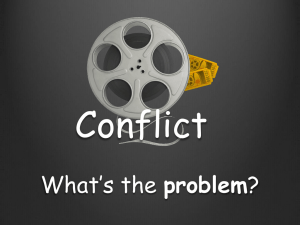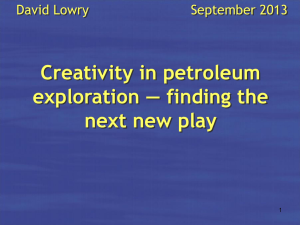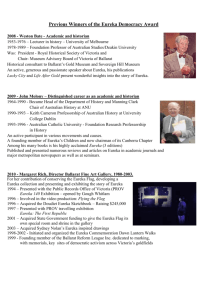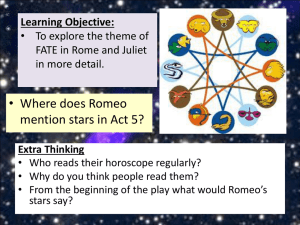Organization of Ideas
advertisement
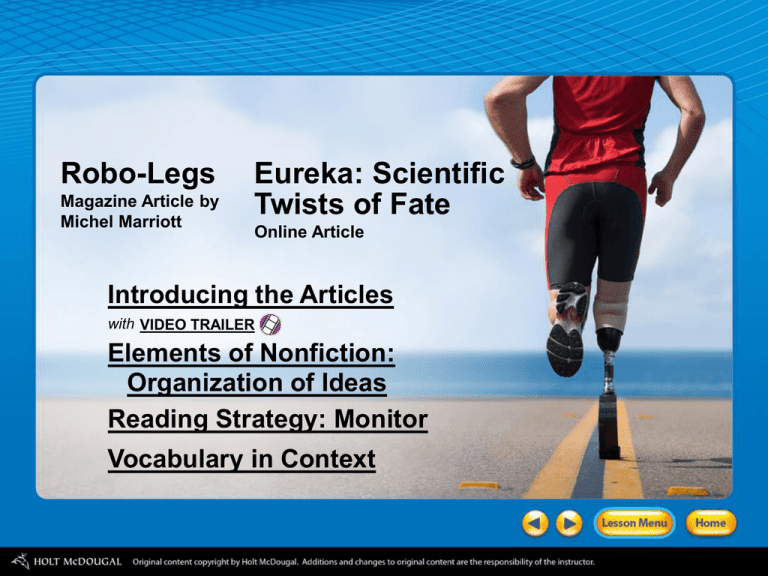
Robo-Legs Magazine Article by Michel Marriott Eureka: Scientific Twists of Fate Online Article Introducing the Articles with VIDEO TRAILER Elements of Nonfiction: Organization of Ideas Reading Strategy: Monitor Vocabulary in Context Robo-Legs / Eureka: Scientific Twists of Fate INTRODUCING THE ARTICLES How has SCIENCE changed our lives? The next time you answer a cell phone, turn on a light, or take your asthma medicine, think about the knowledge that was needed to create these things. Science has made it possible for doctors, engineers, and inventors to develop technologies and medicines that make our lives healthier and more convenient. Robo-Legs / Eureka: Scientific Twists of Fate INTRODUCING THE ARTICLES How has SCIENCE changed our lives? In the following articles, you’ll read about some of the amazing scientific breakthroughs that have allowed people to lead longer, better lives. Turn and Talk What is one scientific development that you feel you could not live without? Think beyond obvious technological gadgets such as your computer or cell phone. Robo-Legs / Eureka: Scientific Twists of Fate Click on the title to play the trailer. Robo-Legs Robo-Legs / Eureka: Scientific Twists of Fate Organization of Ideas Many nonfiction texts are organized in what might be called part-by-part order. One idea or group of ideas suggests another, and so on until the end. Each idea is related in some way to the one before it and the one after it, but not necessarily in the same exact way. One Idea Another Idea Yet Another Idea Robo-Legs / Eureka: Scientific Twists of Fate Organization of Ideas For example, Michel Marriott begins “Robo-Legs” with Cameron Clapp’s personal story. Then he presents information about artificial limb technology. Next he talks about how people’s attitudes toward wearing such limbs are changing. Each new idea relates to the one before it—but not in any predictable way. Robo-Legs / Eureka: Scientific Twists of Fate Organization of Ideas To follow along while reading articles, you need to pay attention to topic sentences and subheadings, which introduce new parts. The Wright Brothers The Physics of Flight The Wright brothers studied bird flight to get ideas… Kites Test Theories Before building a plane, the Wright brothers experimented with kites... Robo-Legs / Eureka: Scientific Twists of Fate Monitor When you monitor your reading, you pause to check your comprehension of the material. To monitor effectively, pause frequently and try the following strategies: • Ask questions about the information presented. • Visualize, or picture, events and details described. • Reread passages that you find confusing. Robo-Legs / Eureka: Scientific Twists of Fate Monitor Use a chart like the one shown to help you monitor. Where I Paused What Confused Me How I Clarified the Information
